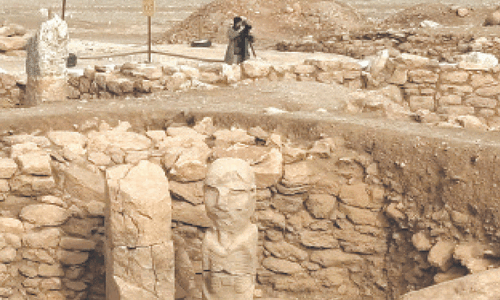
KHAN Bahadur Qazi Azizul Haque was born in 1872 in Paigram Kasba village in Khulna district of Bengal, now in Bangladesh. His parents died in a boat accident when Haque was a child. The sudden loss of parents, especially the father, entailed financial hardship on the family, leaving Haque’s older brother to look after the family.
Haque was a precocious child with an uncanny ability to solve numerical problems. His other passion was food — from all accounts he was a hearty eater. Since, the family was hard up Haque was often scolded by his older brother to mend his eating habits. One day his brother returned home from work, to find that Haque besides eating his own share of the meal, had also consumed a substantial portion of his brother’s food. Enraged, he thrashed Haque. Humiliated and heartbroken, Haque left the house, boarded a train and arrived in Calcutta in 1884.
A lost, famished and weary Haque, was found sleeping outside the home of a wealthy, distinguished Bengali Babu, a Hindu, who took pity on him and employed him as an errand boy in his house. Haque settled down in the large Calcutta house of his benefactor doing odd chores. However, when a tutor would come to teach the children of the house, Haque would eagerly squat on the floor nearby and take interest in the lessons. Pretty soon Haque was solving mathematical problems which the children of the house could not. The astonished tutor further grilled Haque and was surprised by his mathematical acumen and promptly reported the matter to the master of the house.
The kind Hindu gentleman further queried Haque, who at last told him the truth — that he was a runaway from home with some formal schooling in his village. The gentleman was convinced that Haque was a gifted boy. Then and there, he arranged proper schooling for the child.
Haque went on to attend the prestigious Presidency College in Calcutta where he excelled in mathematics and science. In 1892, Sir Edward Richard Henry (1850-1931), Inspector General of the Bengal Police, wrote to the principal of the college requesting him to recommend one of his students with a strong background in statistics, for a job under him in the police service. The college principal immediately recommended Haque, whereby, he was recruited as a police sub-inspector along with another young man, Hem Chandra Bose.
Both Haque and Bose were employed by Sir Henry to develop the “Henry Classification System” of fingerprints. Haque, reportedly, provided the mathematical basis for the system, while Bose complemented it by devising a telegraphic code system for fingerprints. The research of Sir Henry, Haque and Bose which came to be known as the “Henry Classification System” of fingerprinting was successfully used for nearly a century.
Serious studies of hand impressions and fingerprint characteristics started from the mid-1600s onwards in Europe. However, the use of fingerprints as a means of identification did not occur until mid-19th century. In about 1859, Sir William James Herschel discovered fingerprints remain stable over time and are unique across individuals. As chief magistrate of the Hooghly district in Jungipur, India, in 1877, he was the first to institute the use of fingerprints as a means of identification, signing legal documents, and authenticating transactions.
In 1892, statistician Sir Francis Galton published his highly influential book, Finger Prints in which he described his classification system that include three main fingerprint patterns — loops, whorls and arches. In 1894, Sir Henry became interested in fingerprints for the use of criminal investigation and his fingerprint identification system has earlier been recounted.
As a distinguished police officer Haque, subsequently, opted to join the Bihar Police Service when Bihar was separated from the Bengal Presidency in 1912. Upon his retirement from service, he settled in Motihari, Bihar, where he died in 1935. He had eight surviving children. His wife and children with their families migrated to Pakistan after partition in 1947.
Historians, researchers and experts on the subject of fingerprinting, both Indian and Western, have over the years unanimously acknowledged the role of Haque as the man who contributed the maximum in devising and perfecting the Henry Classification System of fingerprints. For his exceptional contribution Haque received the title of Khan Sahib in 1913, and that of Khan Bahadur in 1924 from the British government along with a jagir (feudal land grant) in Motihari.
—The Daily Star / Bangladesh
Published in Dawn, May 10th, 2017
































